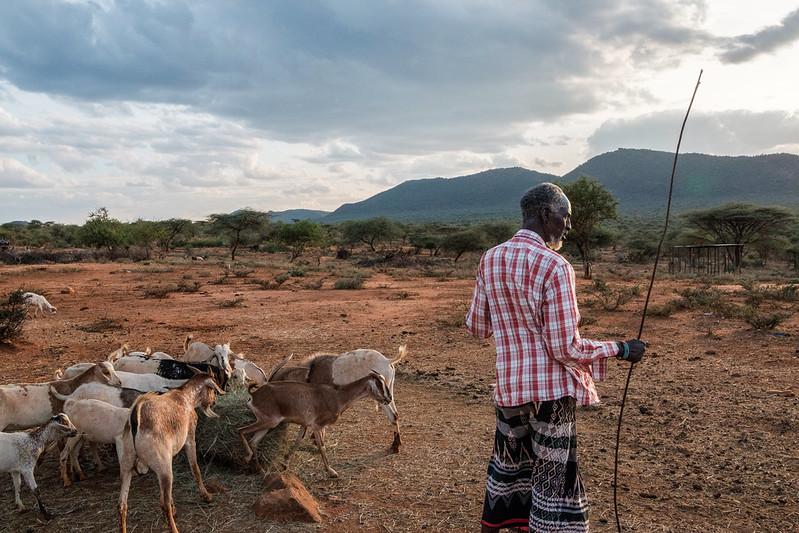
Tackling the Intractable: the Political Economy of a Livestock Transition in Line with Climate Goals - 10 Dec
Core message
Food systems globally are failing to deliver on multiple fronts, with devastating consequences for people and the planet. While the UN Food Systems Summit in 2021 helped kick-start important national transition pathway processes in many countries, most remain narrow, under-resourced, or lack intra-governmental coordination to maximize policy synergies and resolve trade-offs. While the momentum and interest is building for food system transformations, the reality of aligning major sectors in the food system with climate, biodiversity and health goals must be better understood.
Event Summary
The production and consumption of livestock products must be reduced at the global level with substantial reductions needed across high-income, high-consuming populations. Navigating politics, interests, and conflicts is a crucial part of enabling the changes needed to align livestock production and consumption with climate goals, and planetary health goals more broadly. This event focused on the political realities of aligning livestock production and consumption with climate goals to 2030 – taking into account the scale and pace of changes needed, and the range of barriers and opportunities that could help or hinder depending on the types of actions taken.
Key Takeaways
-
Consumers should have access to the emissions generated by the food they consume. Currently not enough mechanisms are in place that provide this information so that consumers can make informed decisions about the food they purchase.
-
Animal welfare is also gaining attention, with its connections to human and environmental health increasingly being drawn. This opens opportunities for greater awareness and implementation of the One Health agenda. Animal welfare issues can also shape consumer choices. People in the Global North who opt to become vegetarian or vegan diets sometimes base their decisions on concerns over animal welfare.
-
There is a need to expand how we measure a country’s progress beyond GDP measurements. We need indicators on emissions, health and the like to reflect progress in meeting climate goals.
-
Greater attention is needed to promote supply-side interventions that can reduce emissions. Current focus is on the following:
1) Reducing methane in extended production systems, such as methane-inhibiting feed additives, genetic selection of animals and or methane emissions movement tracking technology;
2) Greater regulation of industry emissions; and,
3) Investing in alternative proteins.
However, the impact of these efforts will vary. ‘These are not solutions at the scale of the problem. The first approach is getting the most traction, but if you do the math behind these technologies, their impact would not be enough. The second and third approaches are more promising.’ – Jan Dutkiewicz, Pratt Institute
What panelists had to say
‘The need for and the implications of aligning livestock with the planetary health goals remains a thorny and increasingly neglected issue that's dominated by false assumptions, unproductive dialogue and polarising debate. So while food systems transformations provided a necessary framing for encapsulating the scope and the breadth of the changes needed in the food system, this broad framing has also - to some extent - obscured or removed attention from the deep and urgent changes needed in the livestock sector to align it with global and national commitments on climate change, biodiversity, and public health.’ – Helen Harwatt, Chatham House
--
‘Animal agriculture contributes about 15% of global emissions and 77% of all agricultural land use. We also know that we cannot meaningfully hit emission reduction targets without addressing agricultural emissions… we need policies and approaches at the scale of the problem… which means we need to start reducing aggregate livestock numbers globally with an emphasis on high-income and high-consuming countries.’ – Jan Dutkiewicz, Pratt Institute
--
‘Context is extremely important… African countries are not lacking strategies, what is lacking is getting those strategies to fruition.’ – Namukolo Covic, International Livestock Research Institute/CGIAR
--
‘There is no political space at the moment for transition to a low-meat economy. No government is really grasping it… Tangible action is what can we do today to decarbonize our system.’ – Tim Benton, Chatham House.
Looking Forward
Towards the end of the session, the panelists shared their insights on how to engage with policymakers and apply bottom-up approaches to food systems.
-
We need to understand the differences in country contexts, and how this will impact their approaches. Helen Harwatt, Chatham House.
-
We need to change the politics of the space - citizens need to show that politicians who advocate for and can accomplish climate progress will be elected. Tim Benton, Chatham House.
-
We need to take the scale of the problem seriously, especially in high-income countries that have the funds to invest in transitions and have the regulatory tools to begin a phase-down. Jan Dutkiewicz, Pratt Institute.
-
We need to stop waiting for each other to act - we are all food systems actors, so each one of us simply needs to start moving. Namukolo Covic, International Livestock Research Institute, CGIAR